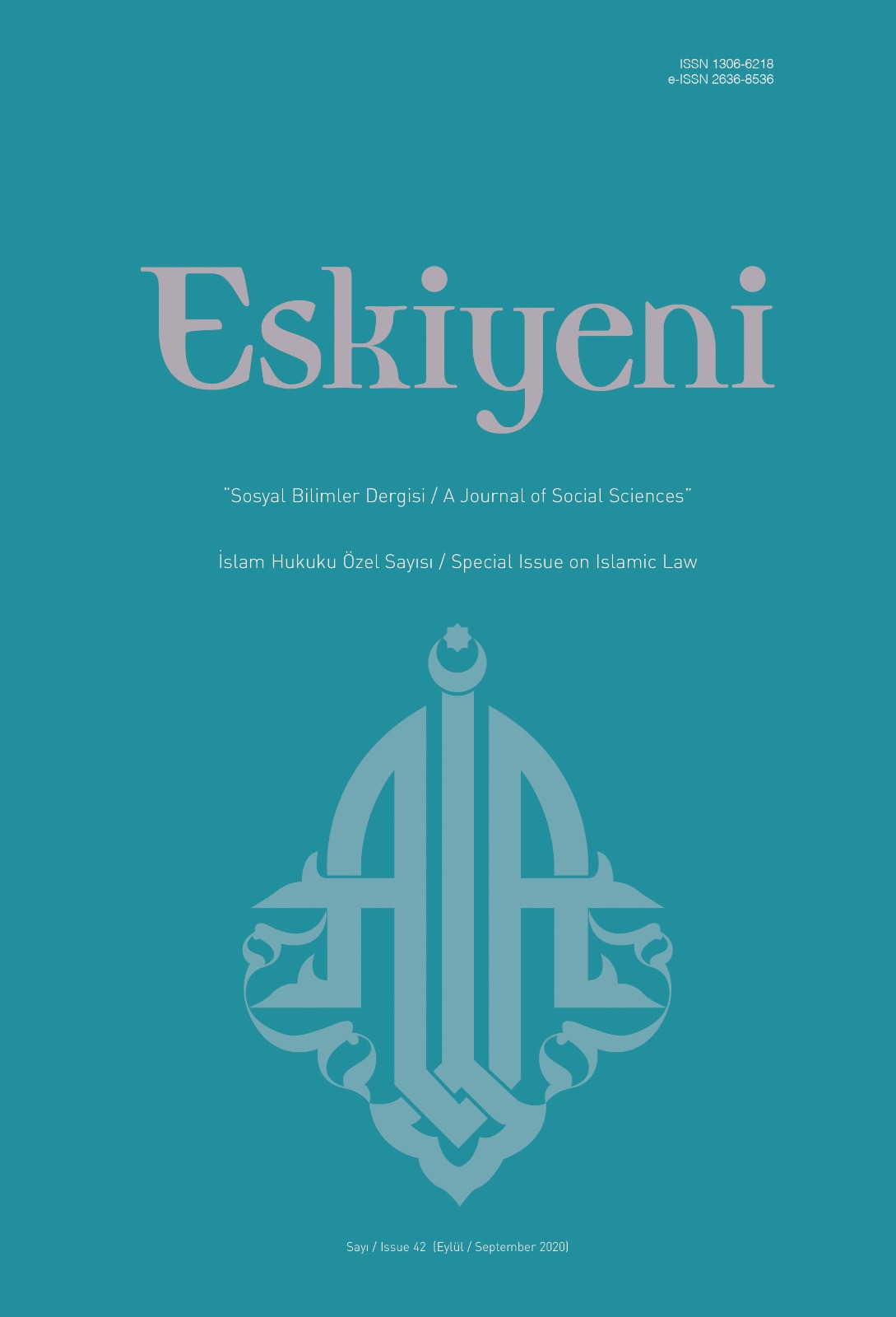Şiî Usûl Düşüncesinde İctihad Bağlamında Muâz Hadisinin Değeri
The Value of the Mu‘ādh Hadīth in the Context of Ijtihād in the Tought of Shī‘ī’s Usūl
Author(s): Ömer KorkmazSubject(s): Islam studies
Published by: Anadolu İlahiyat Akademisi
Keywords: Islamic Law; Shī‘a; Ja’farī; Mu‘ādh Hadīth; Ijtihād; Innocent Imām;
Summary/Abstract: When Mu‘ādh was sent to Yemen as governor, the hadīth that describes the answer of Mu‘ādh which “I will rule with Qur’ān, sunnah, and my opinion.” to the Prophet’s question that “What will you rule with? is known as the Mu‘ādh hadīth. This hadīth was accepted by the majority of Sunni scholars and was used to prove that it was one of the shar‘ī proofs of the qiyās. On the other hand, since the Shī‘ī scholars did not accept the qiyās, they rejected this hadīth and claimed that it was false. However, the Shī‘ī scholars argued that even if it is accepted to be true, this hadith shows that it is not permissible to apply to the qiyās in the presence of the Nass (Qur’ān and Sunnah), and also stated that this can not be evidence of the qiyās. In addition, they do not accept the famous form of the Mu‘ādh hadīth, as well as they put forward another variant of the hadīth which states that “In the resolution of issues that have no verdict in Qur’ān ‘and Sunnah, should be asked to the Prophet”. The highlighting of the narrative, which states that “Mu‘ādh asked the Prophet and waited for an answer on a subject that he could not find any Nass”, had a very important result in favor of Shī‘a. This is because the Mu‘ādh hadīth, which is famous in Sunni sources, both shows that the qiyās is a shar‘ī evidence and contradicts the idea of imāms that must be found in every period. However, the narrative in the form of “No! Write/ask me, I write to you/I will answer”, that supports the understanding of imāmah and wants to be consulted to the opinion of the imām, not the qiyās. In this study, it will be examined whether the effect of the understanding of innocent imāms on the Mu‘ādh hadīth as false by the Shī‘a and how they interpret this hadīth which is presented as a strong proof of the qiyās.The Mu‘ādh Hadīth, presented by the Ahl al-Sunnah as a strong proof of qiyās, contains information contrary to the idea of imamate and the existence of the imam. Because if there is ijtihād, an imam will not be needed. As mentioned in the research, the imam to Shī‘a is both the source and interpreter of the Nass. Therefore, the pres-ence of the imam hinders someone else’s ijtihād. For this reason, the Shī‘a usūlists argue that the Mu‘ādh Hadīth is not sahīh, and even if it was deemed sahīh, it would not point to qiyās as claimed by the Ahl al-Sunnah. In addition, the Shī‘a ‘ulamā’ claim that there is a different variant of the Mu‘ādh Hadīth and that this version of the hadīth is more suitable to be proof. According to this version, the Prophet asks Mu‘ādh “How will you judge if you cannot find the verdict of the case offered to you in the Book of Allah or the Sunnah of the Messenger of Allah?” and when Mu‘ādh gives the answer “I’ll act upon my ra’y and ijtihād (ajtahidu bi-ra’yī)”, the Prophet says “No! Write/ask me and I will write/answer you.”. Therefore, according to this riwayah, Mu‘ādh would not turn to ijtihād for the subjects for which he couldn’t find the an-swers in the Book or Sunnah and, on the contrary, he would have to wait for the answer of the Prophet.Arguing that qiyās is batil, Shī‘a usūlists highlighted this variant of the Mu‘ādh Hadīth. As can be seen, emphasizing this riwayah, which specifies “asking the Prophet and waiting for the answer”, reveals a very important outcome in favor of Shī‘a. Because in its mashhur (well known) form, the Mu‘ādh Hadīth both shows that ra’y/qiyās is a Shar’i proof and it contradicts the idea of imamate, which is considered to be mandatory at all times, and therefore Shī‘a’s idea of sunnah. In the riwayah put forward by Shī‘a, the answer of the Prophet in the form of “No! Write/ask me and I will write/answer you.” emphasizes the idea of imamate and directs people to consult the imam instead of the ijtihādī opinion. Accordingly, Shī‘a ‘ulamā’ should not resort to ijtihād but ask the ma’sum imam for the solution of a matter that is not included in the Qur’an and Sunnah. As a result, it is understood that the understanding of the ma’sum imam, which plays an important role in the interpretation of the ’Āyāt and the hadīth that are in the Sunni sources, is also effective in the interpretation of the Mu‘ādh Hadīth.
Journal: Eskiyeni
- Issue Year: 2020
- Issue No: 42
- Page Range: 909-925
- Page Count: 17
- Language: Turkish

